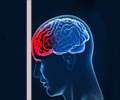About 15% of young people who get concussions struggle with persistent symptoms despite seeing doctors and receiving medical care.

‘It’s challenging when a teenager gets a concussion because it’s hard to tell if a change in behavior is because of a concussion, or because a teenager is going through a growth and development phase.’





Researchers at Seattle Children’s Research Institute published a study in the journal Pediatrics showing a new intervention for adolescents with persistent post-concussive symptoms that improved health and wellness outcomes significantly. The approach combines cognitive behavioral therapy and coordinated care among providers, schools, patients and families. “We were pleased to find that using an approach that adds a psychological care component to treating concussions and providing coordination of care in areas of the patient’s life significantly improved outcomes,” said Dr. Cari McCarty, a psychologist and researcher at Seattle Children’s Research Institute who led the study. “This new approach aims to improve the quality of life for patients who were otherwise left to deal with unrelenting concussion symptoms.”
A fall off a horse causes a persistent concussion
Carmen Einmo, 16, loves to ride horses. In November 2014, she fell off her horse and broke her arm. At first, she didn’t complain of typical concussion symptoms, but after a few weeks it became clear something was amiss.
“I developed really bad headaches and became very sensitive to light,” Carmen said. “I started having memory issues and would forget words in the middle of a conversation.” As her symptoms persisted over a couple months, Carmen’s doctor at Seattle Children’s, Dr. Elaine Tsao, suggested she sign up for McCarty’s study. The family was excited to have found another treatment option to pursue.
Advertisement
Carmen’s grades had started to slip and she worried about how the persistent symptoms got in the way of schoolwork. “I entered my second year of high school ready to start off strong, but the concussion set me back,” she said. “My PE class was especially challenging because I couldn’t run, so I would walk, and I got penalized for it in my grade.”
Advertisement
As a participant in the study, Carmen got support from a research team member that created a coordinated care plan for her. The researcher worked with the school and family on a plan that would allow Carmen to continue school with accommodations as she recovered. The plan included a homework priority list, allowing her more time to finish work and access to another room if she became tired from light and sound in class.
In addition, Carmen received cognitive behavioral therapy that involved her parents and sister. “Cognitive behavioral therapy involves changing both behaviors and thinking patterns,” McCarty said. “In our study that included relaxation techniques, teaching coping skills and offering pain management. We found that incorporating a psychological care component improved health outcomes and quality of life for these kids.”
Only 13% of patients who received the coordinated care and psychological intervention in the study reported high levels of post-concussive symptoms after six months, compared to 42% of patients who received standard concussion care. In addition, 78% of patients who received the specialized care reported reduction in depression symptoms, compared to just 46% of patients who received standard care.
Getting back in the saddle
Carmen is feeling more like herself now and has been cleared to ride horses again. She and her mom say one of the most important things they learned during this experience was to take concussions seriously, especially because the effects and symptoms might not be apparent right away.
“It’s especially challenging when a teenager gets a concussion because it’s hard to tell if a change in behavior is because of a concussion, or because a teenager is going through a growth and development phase,” Einmo said. “We found the therapy to be especially helpful in figuring some of this out.”
Carmen adds that having a plan and realistic expectations with school helped immensely. “I would tell young people struggling with a concussion to stick up for yourself and what you need,” she said. “Take it one day at a time and do your best, and ask for the help you need.”
Source-Newswise










